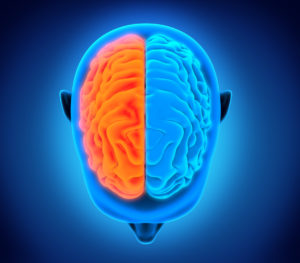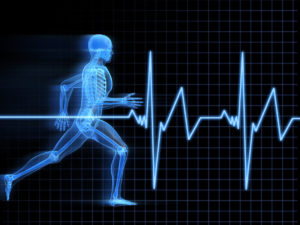
Part I: Emotionally and Physically
In this three-part series of blog articles, I’d like to share some of the ways that I’ve seen my gay male clients benefit from therapy in a way that most people probably don’t think about: how therapy helps with a healthy aging. As a specialist in LGBT affirmative therapy, and more specifically, therapy for gay men for over 24 years, I’ve worked with gay youth, gay men at middle age, and gay seniors. I always say there is both a challenge, and a reward, at every developmental stage of life. Erik Erickson, historic theorist and therapist, described this in his Stages of Life theory. It’s a balance; at every age, we would love to have all the advantages of that age and none of the disadvantages, but life doesn’t work that way (usually). For most of us, we have to learn how to enjoy the pluses of each stage, while developing what we shrinks call “adaptive coping strategies” for the minuses.
Over these next three articles, I want to highlight how therapy can help gay men age gracefully and with dignity in six key areas: Emotionally, Physically, Socially, Culturally, Domestically, and Financially. (A link to Part 2, Socially/Culturally, is here, and Part 3, Domestically/Financially, is here.)
Today, let’s look at those first two, Emotionally and Physically:

Emotionally
While therapy can help you come to terms with many emotions, including challenges like depression and anxiety, discussing aging in session can help you come to terms with your past, and to understand that your future does not need to be diminished just because you came from abuse, hardship, poverty, or traumatic experiences. Emotionally “processing” what happened to you is actually a neurological process, and most people don’t know this about psychotherapy. Images, feelings, and gut experiences/memories that are stored implicitly in your right brain hemisphere can be transferred to your left brain hemisphere, which is responsible for organizing language and expression into a coherent narrative. The relief feeling of “getting something off your chest” is a part of this (maybe we should really call it “getting something off your right brain!”).
Therapy can also help you resolve old hurts, which can involve that whole concept of “forgiveness”, but it doesn’t have to. The definitions of “forgiveness” can vary, from either your social or even spiritual point of view. New Age author Louise L. Hay has said that forgiveness is not condoning what someone did to you in the past, but it’s about coming to understand the experience in a more layered way, so that the experience doesn’t undermine your self-esteem, confidence, or ability to enjoy your life (home, work, relationships, health) in the future. With the help of Cognitive Therapy, your experiences can perhaps be seen in a different light, or in a certain context, that helps reduce the negative impact of whatever it was you went through.
 Many of my clients have been through traumatic experiences, from abuse, sexual assault, molestation, incest, violent crime, interpersonal betrayal, bullying, religious abuse, discrimination, hate crimes, “conversion” therapy, or losses due to the death of loved ones. When someone talks about these experiences in therapy, they are doing that “right brain to left brain” processing by talking about them (or sometimes writing about them, or expressing themselves in other ways, like drawing) and performing what shrinks call “horizontal integration” in the brain. The effect of this can bring about relief, like a weight has been lifted, which is why Sigmund Freud called therapy “the talking cure”. With the weight off your shoulders, you can move forward in life to the next stage of adult development with more peace of mind, freed from the burden of what happened to you. Where I teach (the USC Suzanne Dworak-Peck School of Social Work), there is a special educational track of the graduate MSW program that focuses on military social work, where students learn techniques for helping combat veterans who suffer from Post-Traumatic Stress Disorder (PTSD). But even if your experiences were not as severe as war combat, some of the same neurological processes would be similar. Daydreaming (“flashbacks”) or nightmares are good examples of the right brain hemisphere “sending you hints” that images, memories, and feelings need to be talked about in order to be emotionally resolved. Techniques like Cognitive-Behavioral Therapy, Exposure Therapy, Eye Movement Desensitization and Reprocessing (EMDR), art/music/expressive therapies, and Existential Therapy can all help with these symptoms, allowing someone to age into the next phase of life more confidently.
Many of my clients have been through traumatic experiences, from abuse, sexual assault, molestation, incest, violent crime, interpersonal betrayal, bullying, religious abuse, discrimination, hate crimes, “conversion” therapy, or losses due to the death of loved ones. When someone talks about these experiences in therapy, they are doing that “right brain to left brain” processing by talking about them (or sometimes writing about them, or expressing themselves in other ways, like drawing) and performing what shrinks call “horizontal integration” in the brain. The effect of this can bring about relief, like a weight has been lifted, which is why Sigmund Freud called therapy “the talking cure”. With the weight off your shoulders, you can move forward in life to the next stage of adult development with more peace of mind, freed from the burden of what happened to you. Where I teach (the USC Suzanne Dworak-Peck School of Social Work), there is a special educational track of the graduate MSW program that focuses on military social work, where students learn techniques for helping combat veterans who suffer from Post-Traumatic Stress Disorder (PTSD). But even if your experiences were not as severe as war combat, some of the same neurological processes would be similar. Daydreaming (“flashbacks”) or nightmares are good examples of the right brain hemisphere “sending you hints” that images, memories, and feelings need to be talked about in order to be emotionally resolved. Techniques like Cognitive-Behavioral Therapy, Exposure Therapy, Eye Movement Desensitization and Reprocessing (EMDR), art/music/expressive therapies, and Existential Therapy can all help with these symptoms, allowing someone to age into the next phase of life more confidently.
Family of Origin
Many of my clients are dealing with the emotions related to their Family of Origin issues, which usually involves parents but can also include siblings, grandparents, or extended family. Therapy as a young adult, or even middle age, can address “where you came from” (for better or worse) so that you can set your goals on what you want life to be like “where you’re going.” If you can learn to know what strengths your Family of Origin gave you (values, spirituality, culture, education, skills, business), and also come to terms with any hardships you experienced there (abuse, poverty, substances, heavy criticism, abandonment/neglect, death, disability, etc.), you can then understand and empower yourself more profoundly for creating (not just passively going into) your future.
Historical Events
Coming to terms emotionally with your past can also involve issues outside of your family, but more to do with your community or nation. With gay men, I often hear of how the AIDS crisis affected them in their younger years, or the Great Recession, 9/11, or even earlier historical issues (Vietnam, Stonewall, the “Disco Era”, etc.). You might have had experience with breakup or divorce, being widowed from a partner/spouse’s death, or coping with survivor guilt from an event that hurt others but that you survived.
How Therapy Helps Emotionally with Aging
How does therapy help someone with the emotional aspects of aging?
This is done through talking about your experiences in a way that can be guided by a therapist, who might ask you to explain items that don’t seem to connect, or might ask about how past events have affected you in the present day. A therapist might offer “cognitive restructuring”, which is a way of teaching you to think about something from a different angle that you may not have considered before, which puts the experience in a new light that might result in your feeling relieved, less guilty, less ashamed, or with more insight, perspective, and understanding. Behavioral exercises that help both foster and resolve memories would be part of most therapists’ “tool box”. Finding meaning also can be an important part of the process, because when we find existential or social/personal meaning in what we have experienced, we can use that insight for informing our decisions, actions, and strategies for a better future. Most therapists use “psychoeducation”,which is form of learning something, but in a psychological context. For example, learning about Erickson’s stages or learning about facts we know about people from human development research can be enlightening and can help you feel less alone in the challenges you live with. Since I have been providing therapy for a long time (24 years), sometimes you can learn from me how previous clients (with their identification details still being confidential) have handled similar situations and gotten better. Learning more about what “cognitive distortions” (which really just means “bad habits in thinking”) may be holding you back, as well as learning about “defense mechanisms” (psychological ways that human minds try to protect us from stress) can also help someone feel liberated from past experiences, to face their future with confidence.
The role of therapy in helping you to age gracefully physically is interesting because it differs in some ways from the way that other interpersonal health resources (professional or personal) might do, such as with your physician, dentist, personal fitness trainer, nutritionist, sober coach, AA sponsor, workout partner, etc.
Therapy can help aging gracefully at any age, from children going through rapid developmental phases, to adolescents coping with life changes at puberty or during their teens. At middle age, I help a lot of guys come to terms with common challenges such as a slowing metabolism (and possible weight gain), male pattern balding progression (and how to cope with it), coping with chronic conditions like HIV or hypertension, or even how work stress can affect your health.
How Therapy Helps Physically with Aging
The role of therapy in helping you age gracefully can include my teaching you ways to enhance your motivation for exercise, giving some education about how others have handled your same aging challenges (and lived to tell the tale!), coaching you on adopting self-care habits that lead to more robust health, and helping you change your own set of beliefs to increase your self-esteem, self-acceptance, and self-concept (all similar, but distinct, parts of a healthy “sense of self”). A therapist could also help by collaborating (with your written permission to discuss otherwise confidential issues) with your doctor or anyone you designate. Therapists and other professionals working together can form partnerships that are focused on collaborating on ways to help you with better health overall or with specific goals (recovery from alcohol/drug dependence, managing depression/anxiety, smoking cessation, fitness/weight management, etc.). We also make referrals for you to access resources outside of therapy that might help you, such as recommending gay (or gay-friendly) primary doctors, psychiatrists, 12-Step resources, alternatives to 12-Step resources, or other community professionals (therapists tend to have a wide array of collaborators, especially ones who have been around a long time in the same place, as I have in Los Angeles/West Hollywood).
When you receive support for emotionally and physically facing the next phases of life, you “set yourself up” for success, even if your past has really hurt you, or held you back. In the next article in this series, we will look at how therapy can help you age gracefully Socially and Culturally, to stave off loneliness and to help you feel a part of your own community and world. Look for Parts II and III, at those links. Share these articles with others, too! (To sign up for my e-newsletter and get new articles delivered to your email box, visit this page: https://gaytherapyla.com/resources/gay-mens-e-newsletter/). For information on working with me or to schedule an appointment (in the office, or via phone or webcam), call or text me at 310-339-5778, or email Ken@GayTherapyLA.com.



